Litany for the Rebels & the Wrecked
For the addicts who’ve lost count of their tries to get clean,
for the ones who still taste blood in their mouth from the last time they hit rock bottom,
Lord, show them they’re worth saving.
For the abused who wonder if their bodies will ever stop shaking,
for the survivors who can’t look in the mirror without flinching,
Lord, hold them where it hurts.
For the angry, the hard-hearted, the ones who cuss You out in the dark because You didn’t show up when they begged,
Lord, stay close anyway.
For the men and women haunted by sexual wounds, who think they’re ruined goods,
for every memory that makes them gag on shame,
Lord, whisper that they’re still beautiful.
For the rebels with middle fingers up at the world — and at You —
who are secretly terrified You don’t exist because if You did, how could You want them?
Lord, be louder than their fear.
For the suicidal, the self-haters, the ones who dream of disappearing,
for every heart planning to end it because the ache feels permanent,
Lord, break through the lie that this is all there is.
For the ones buried in porn, in bottle after bottle, in needles, in casual sex that leaves them emptier each time,
Lord, chase them down.
For those who think despair is smarter than hope,
that cynicism is safer than risking their hearts again,
Lord, prove them wrong with mercy.
For the ones too tired to pray, too dirty to kneel, too far gone to believe in second chances,
Lord, don’t let go.
For me — for all my jagged edges, my hidden wounds, my stories I still hate to tell,
Lord, love me right here, as I am.
This is a place for the ones who think they’re too wrecked for God — too addicted, too angry, too covered in scars. For the misfits who’ve been told they’re too much, or not enough, or just too broken to ever be made whole.
Our mission is simple: to show you that holiness was never about perfection. It’s about letting grace crash into your chaos. It’s about finding God right where it hurts most, where your story feels too twisted to tell.
We stand here, rebellious and unpolished, with a middle finger to despair and all the cheap lies this world sells. We believe in a Catholic faith that’s raw and relentless — a love stubborn enough to chase you down even when you’re running hard the other way.
Because you’re not too far gone.
Because there is still hope.
Because God wants you exactly as you are — messy, aching, and wildly worth loving.
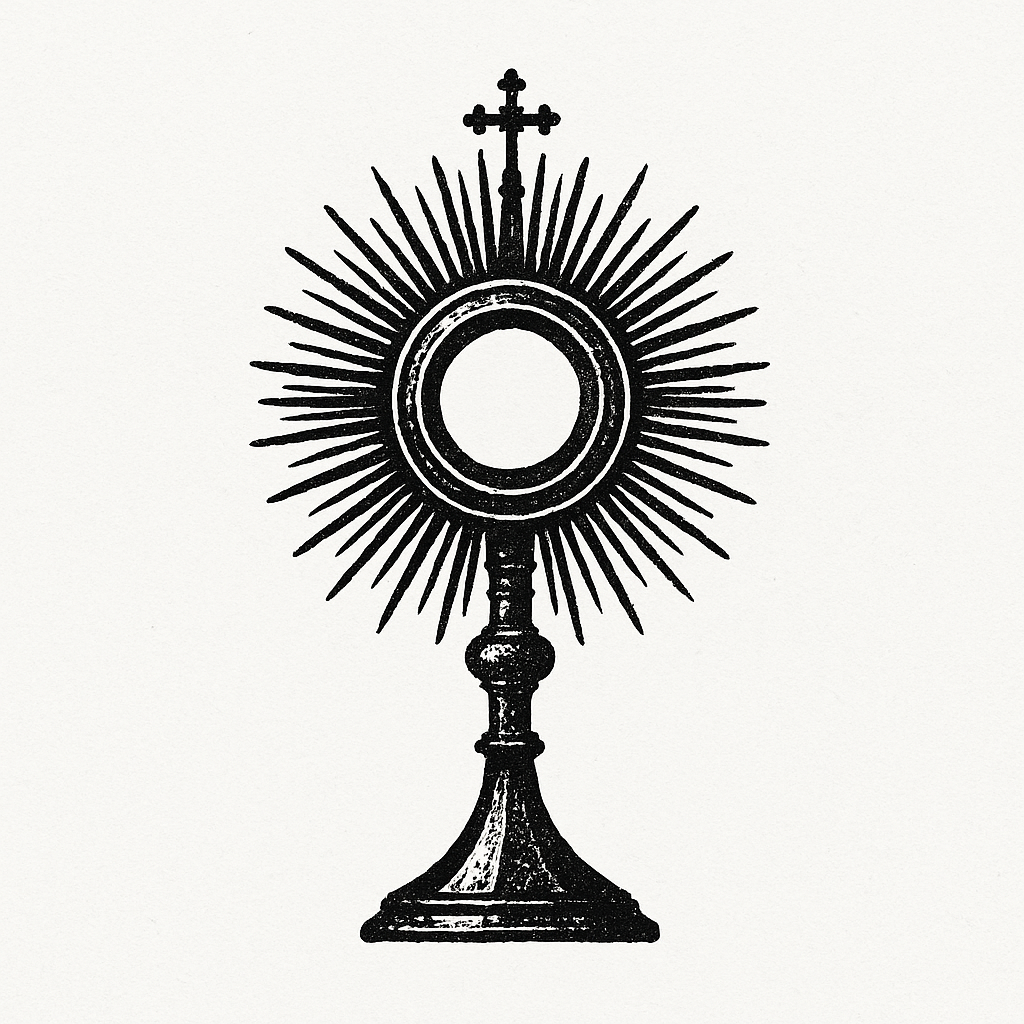
Our Patron Saints
Saints are like our best friends in heaven. They’re not perfect — they were messy, wounded, stubborn people who let God love them anyway. That’s what makes them holy: not that they had it all together, but that grace met them right in the middle of their chaos. Now they’re cheering us on, proving it’s never too late to start over.
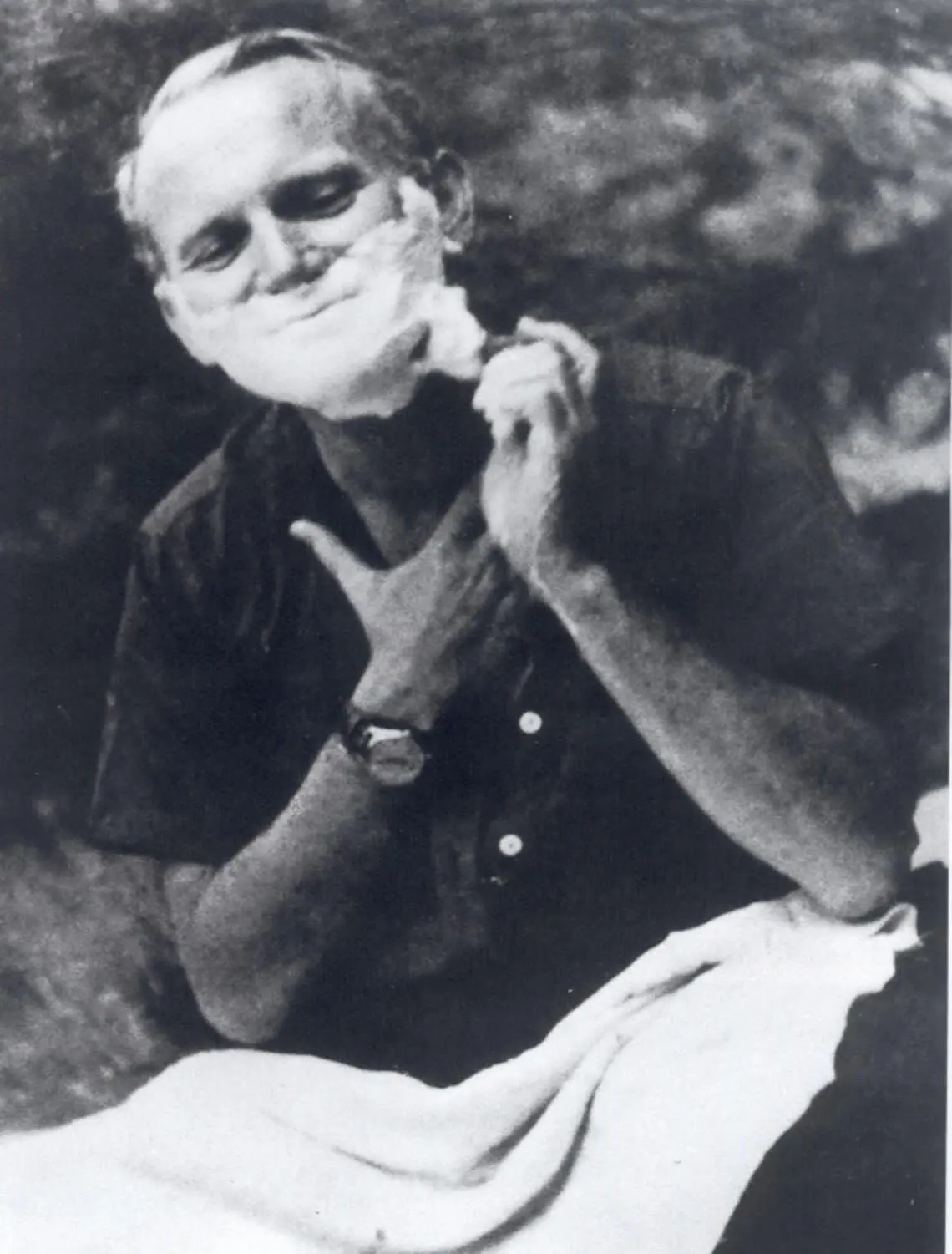
John Paul II
Before he was pope, Karol Wojtyła was a young man in Nazi-occupied Poland. By 21, he’d stood at the graves of his mother, his brother, and finally his father — alone in the world. He dreamed of the theater, of words and beauty, but the war shattered that. Nazis dragged his friends away to camps. He dodged arrest by slipping down back alleys and ended up hauling stone in a quarry under armed guards, hiding scraps of bread under his shirt for starving families.
The Nazis discovered he was part of an underground seminary — they planned to arrest and kill him, but he narrowly escaped in a raid. When the war ended, Communism rose in its place, choking the Church and hunting anyone who defied it.
Years later, he became pope — the young man who had buried his family, hidden from Nazis, and prayed through the night in fear. Communists tried to break the Polish people, but he stood before millions and thundered, “Be not afraid!” sparking a fire that helped bring down the Iron Curtain. Even then, hatred stalked him: he was shot in St. Peter’s Square, nearly bled out, and would carry bullet scars and shaking hands from Parkinson’s for the rest of his life.
If your world feels crushed by loss, if tyrants — within or without — have stolen your joy, John Paul II has walked that valley. He knows darkness. And he knows there’s still meaning, still hope, on the other side.
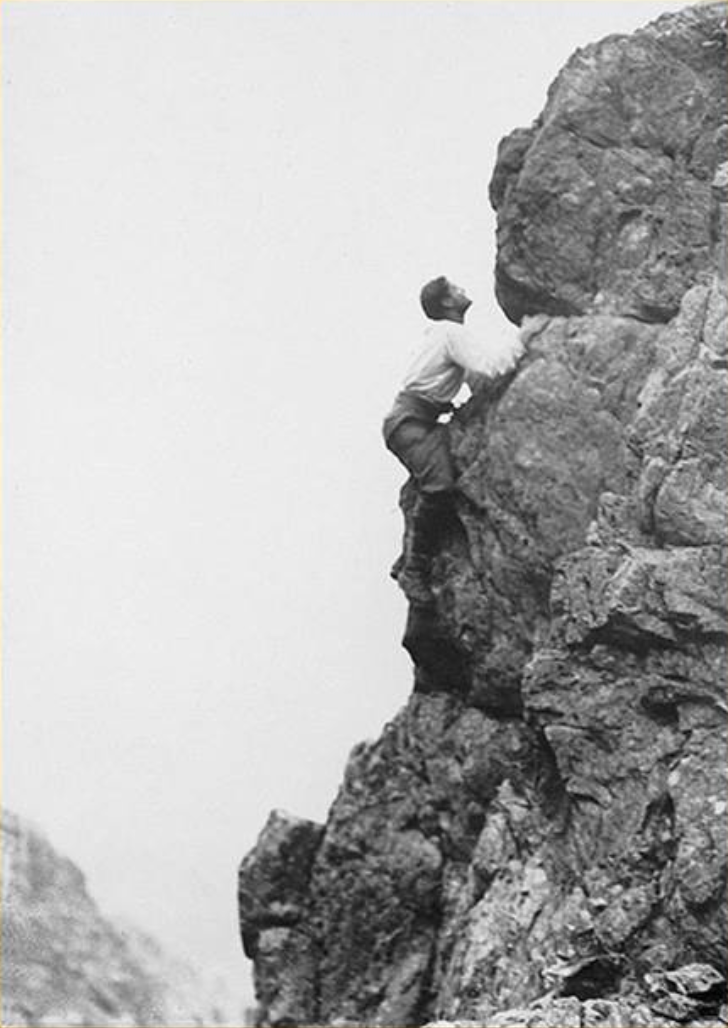
blessed giorgio frassati
Pier Giorgio seemed like the golden boy — athletic, charming, always surrounded by friends. But behind that bright smile was a fierce ache for justice and deep compassion for the poor. He spent nights sneaking food, medicine, and beds to families living in the shadows of Turin.
His home life was messy; his parents’ marriage was cold, their politics clashed with his faith, and he often felt misunderstood under their roof. He fell in love with a woman he longed to marry, but out of respect for his family’s turmoil, he quietly let her go — a hidden heartbreak.
Pier Giorgio died young, at 24, from a sudden illness caught while serving the sick. At his funeral, thousands of poor people he had helped showed up, revealing the secret life of mercy he had been living.
If you feel lonely in your own house, or if loving others has cost you something real, he’s your friend. He’d probably invite you on a hike, buy you coffee, and tell you heaven is worth the climb.
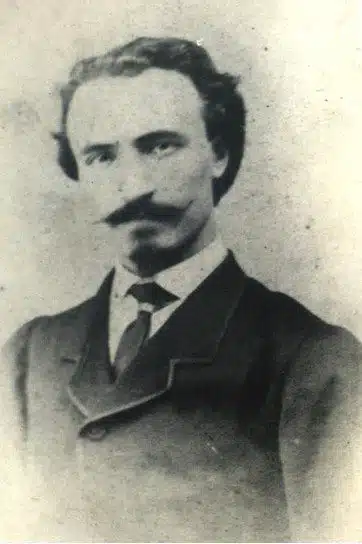
Blessed Bartolo Longo
Bartolo’s story doesn’t start in church — it starts in the occult. As a young man in Italy, he was a Satanic priest, plunging into dark rituals, publicly mocking Catholics. It nearly destroyed his sanity. But somehow, in the thick of that darkness, God found him. Bartolo was terrified his soul was damned forever — he even called himself “the devil’s priest.” Desperate for a fresh start, he tried to build a normal life. He fell deeply in love with a devout woman named Marianna, but was haunted by the fear he was too stained, too wrecked by his past to ever be a husband worthy of her.
Instead of turning away, Marianna helped lead him back to confession, to prayer, to mercy. Together they decided to live chastely, pouring their lives into serving the poor and rebuilding ruined churches. Bartolo spent the rest of his days making reparation — spreading devotion to the Rosary, caring for orphans, and repairing what his old darkness had tried to destroy. Even when fear of hell still gnawed at him, a priest promised, “Whoever promotes my Rosary shall be saved.” Bartolo clung to that with all he had.
If you think you’ve gone too far, done too much, or loved in ways that ended messy — Bartolo proves it’s never too late to turn around. Even Satan’s priest became Heaven’s friend.
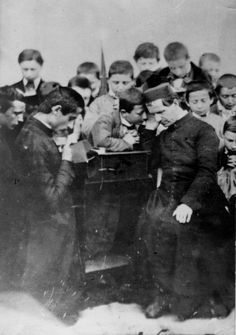
St. John Bosco
John Bosco grew up in grinding poverty, raised by a single mother on a small farm after his father died. As a boy, he was quick-tempered and wild — he picked fights, pulled pranks, got into scraps with other kids. Holiness didn’t come easy.
But under all that roughness was a deep compassion. He’d gather local boys — orphans, thieves, kids sleeping on the streets — and teach them games, perform magic tricks, slip in bits of the Gospel when they laughed enough to listen. The grown-ups hated it. Authorities called him reckless, irresponsible. Mobs once tried to beat him to death. Still, he kept opening his doors to boys nobody else wanted.
When he was exhausted or afraid, he’d whisper to Jesus in the tabernacle, telling Him every worry like a friend. If you feel too angry, too undisciplined, too “bad” to be holy — if your heart is tender but your habits are messy — Don Bosco knows exactly how that feels. And he’ll teach you how to stay close to God without pretending to be perfect.
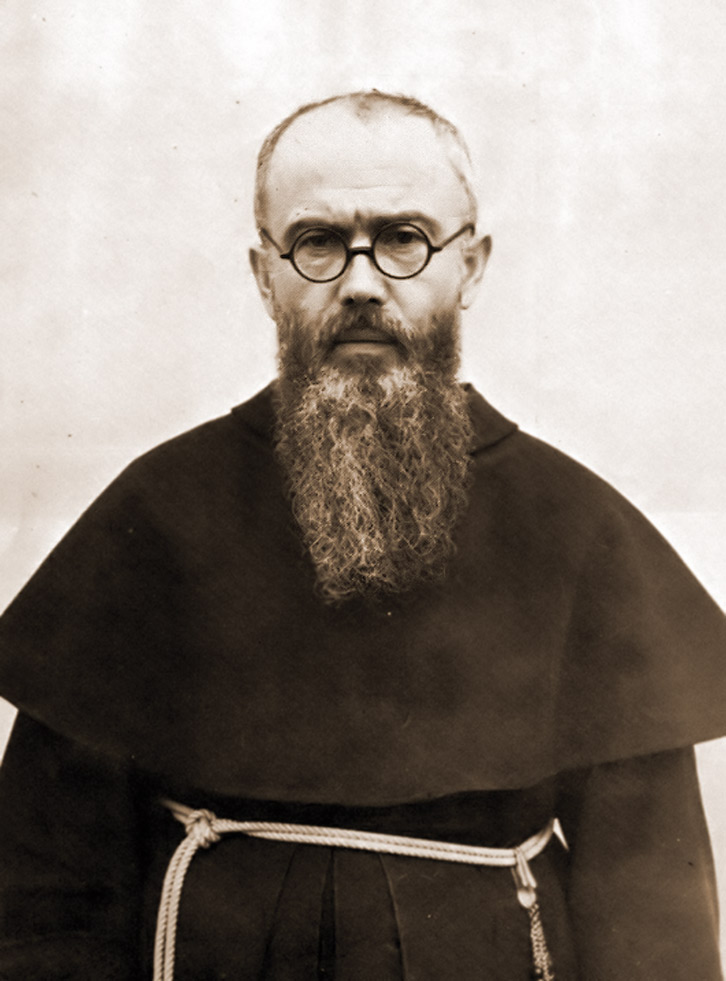
St. Maximilian Kolbe
Maximilian Kolbe was a dreamer — as a little boy in Poland, he had a vision of Mary offering him two crowns: one white for purity, one red for martyrdom. He took both. But that didn’t make him fearless.
He grew up, became a priest, loved tinkering with printing presses and radios, spreading hope in a world that felt like it was splitting at the seams. Then the Nazis came. They locked him in Auschwitz. Starved him. Beat him. Made him watch other men be dragged away to die. One day, when ten prisoners were picked to be starved to death as punishment for another’s escape, a stranger — a father sobbing for his children — was among them. Kolbe quietly stepped forward and said, “I am a Catholic priest. I wish to die for that man.”
He spent his final days leading the men in hymns and prayers, helping them face horror with dignity. When he grew too weak to stand, they found him kneeling, whispering prayers.
If you’ve ever felt terrified of suffering, or doubted God’s goodness in the face of evil, or wondered if you’d have the courage to be brave — Kolbe shows that it’s okay to be afraid. Holiness isn’t about being fearless. It’s about love that’s willing to stand in another’s place, even when your knees are shaking.
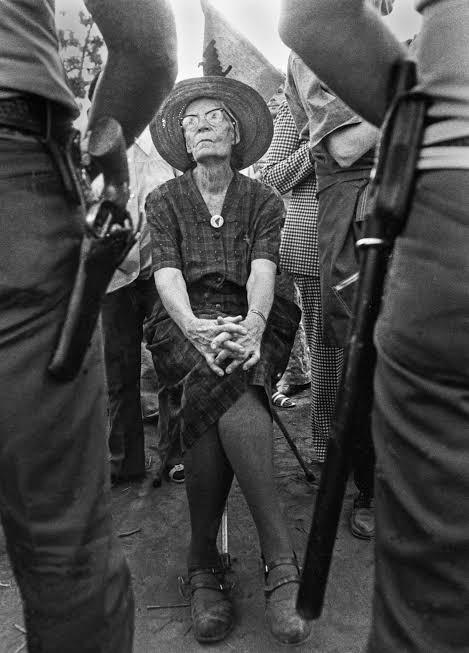
Servant of God Dorothy Day
Dorothy Day didn’t start holy. She drank hard, lived with men out of wedlock, tangled herself in messy love affairs and broken promises. She had an abortion — a choice that haunted her for the rest of her life. Her politics were radical, her anger fierce, her heart restless and rebellious.
When she gave birth later to her daughter Tamar, something cracked open. But even kneeling at the back of a church, weeping her way into Catholicism, Dorothy was terrified God couldn’t possibly want someone with her past. She didn’t clean up neatly. She moved into the slums by choice, opened houses for drunks and addicts, kept her door unlocked at night for strangers. And still wrestled with the wounds of her old life.
She once wrote, “I only love God as much as I love the person I love the least.” If you think your sins disqualify you, that your vices are too deep or your history too dirty — Dorothy proves God doesn’t start with the cleaned-up parts. He starts right in the wreckage.

Venerable Matt Talbot
Matt Talbot grew up in the slums of Dublin, one of twelve kids, with a father who was a violent alcoholic. By 12, Matt was drunk himself, by 13 skipping work to drink, and by his teens, he was completely enslaved — spending everything he earned on whiskey. He pawned his clothes, his boots, even once his violin, just to buy more.
He stole. He lied. He’d collapse in alleyways. Friends would say later that Matt was the worst drunk in the neighborhood — a man most people thought was beyond saving. At 28, flat broke and desperate, he tried to borrow money for more drink. Everyone turned him down. Ashamed, he went home, told his mother he was going to “take the pledge,” and staggered to confession. From that day forward, he never touched alcohol again — though the temptation haunted him for life.
Matt spent the next 40 years living as a laborer, rising at 5 to pray, attending daily Mass, sleeping on boards with a piece of timber for a pillow, wearing hidden chains of penance around his waist. When he died on the street one morning heading to Mass, they found a pocket filled with prayer cards and a small book of the Gospels.
If you think your addiction defines you, that you’re too enslaved, too failed, too far gone — Matt Talbot is proof God can turn even the most hopeless drunk into a quiet, luminous soul.
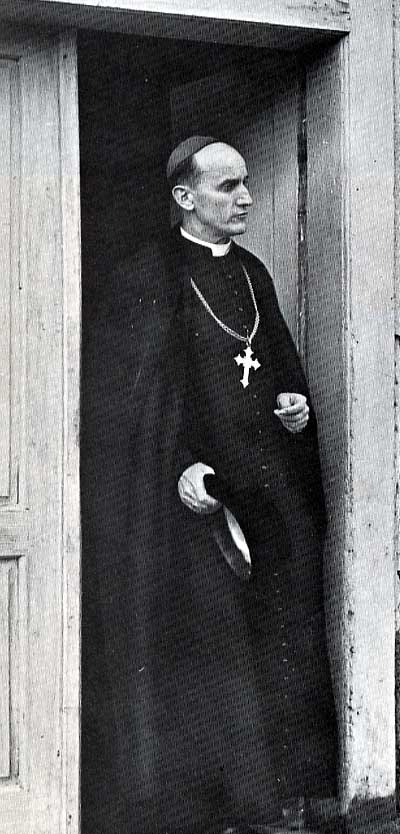
Blessed Alojzije Stepinac
Blessed Alojzije Stepinac was a young archbishop in Croatia when the world was swallowed by tyrants. First the Nazis came — hauling people away, murdering Jews, Serbs, Roma. He stood in his pulpit and condemned it all, refusing to let the Church be their puppet.
Then Tito’s Communists seized power. They hated Catholics — churches were raided, priests dragged off in the night, families terrorized. Thousands were sent to Goli Otok, a barren rock island turned into a living hell, where believers were starved, tortured, and forced to beat each other into submission. Tito offered Stepinac a deal: break from Rome, create a state-controlled Church, and all would be “peace.” Stepinac refused. So they arrested him, staged a sham trial, smeared his name, and sentenced him to years in brutal prison — hoping to humiliate him into silence.
Even under constant guard, slowly poisoned by harsh confinement, he wouldn’t back down. They finally let him live under house arrest, hoping isolation would finish what prison began. It didn’t. He kept writing, praying, guiding his flock through smuggled letters. Before he died, he declared, “If you take away freedom, then life loses its meaning.”
If you’ve ever stood against something bigger than you — a regime, an addiction, a system that wants to crush your soul — Stepinac was there. His life is proof that even under the boots of tyrants, you can stay unbroken.
Also I’ve got a newsletter
Free desktop wallpaper
when everything looked dead, heaven started counting to 3
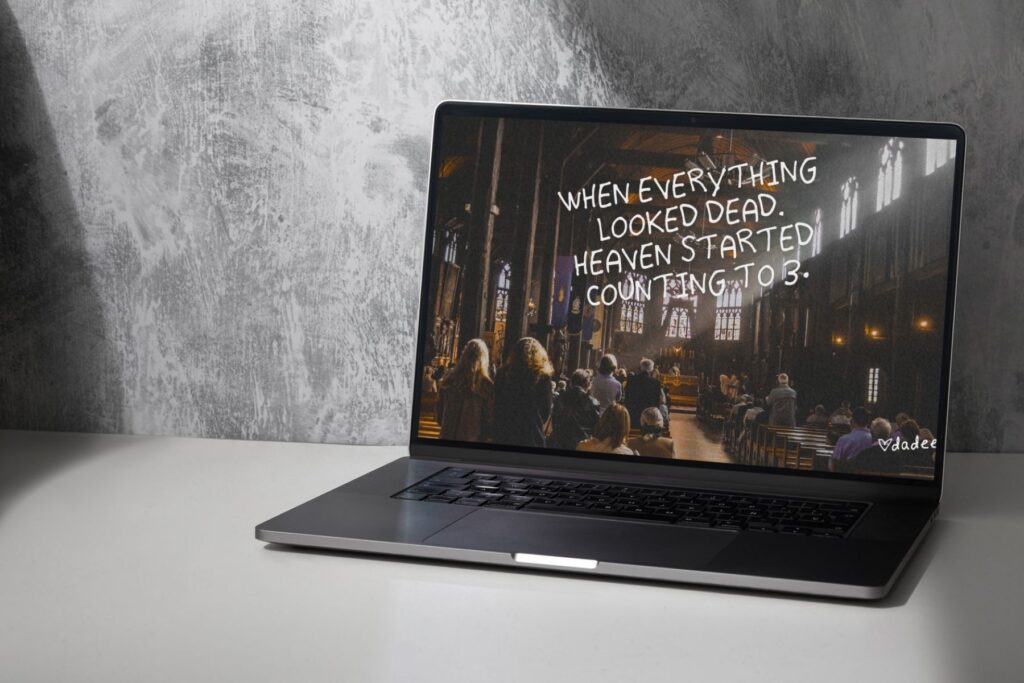
honorable mentions
These are the saints-in-the-making — people still on the road to being officially recognized or currently alive and doing holy work.
Their stories aren’t finished yet, but they already show how God loves working with the most unlikely.

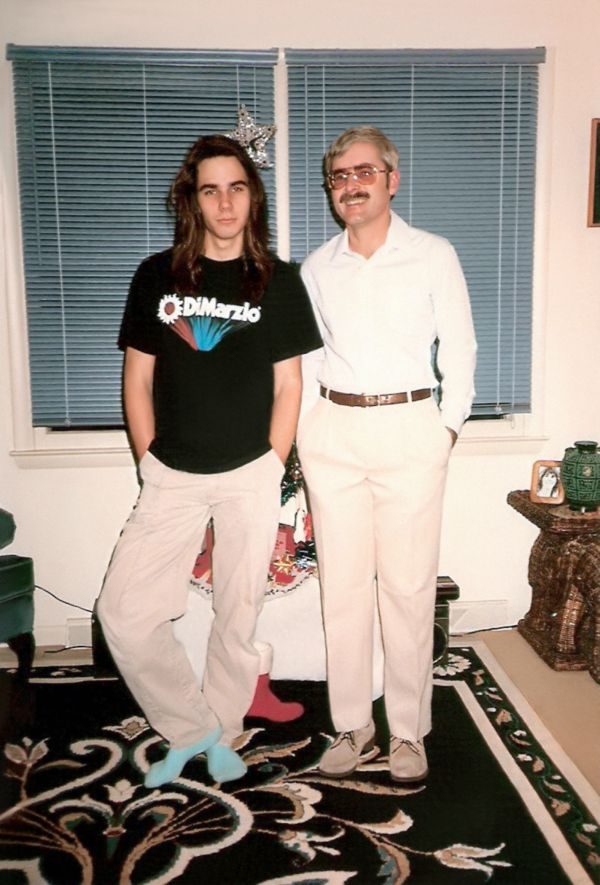
Fr. Donald Calloway, MIC
Fr. Donald Calloway was the kid everyone gave up on. Born to a young mother who bounced through multiple marriages and boyfriends — some who beat him or kicked him out — he grew up with little stability. His stepfather was a high-ranking Navy officer, but even that didn’t rein him in. Don’s chaos got so bad it eventually cost his stepdad his military career.
By 11 he was already hooked on alcohol. By his early teens he was experimenting with cocaine, opium, marijuana, mushrooms, LSD, and whatever else he could get, chasing bigger highs until he nearly died from multiple overdoses. He skipped school, ran the streets, and dove into reckless sexual encounters that put him in dangerous situations long before most kids even think about dating. When his family moved to Japan for a military assignment, Don got tangled up with the yakuza, the Japanese mafia, serving as a drug mule and immersing himself in crime. It all caught up with him when he was arrested at gunpoint, chained up, surrounded by guards, and deported back to the U.S. — dumped off at the airport to parents who hardly knew what to do with him, or even wanted to see him.
His mother once tried dragging him to church — but the priest was so shaken by Don’s dead, furious stare that he almost turned them away. Don stormed off, deeper into the dark. Then one night, half-crazed and empty, he picked up a book about Mary. Something snapped. He broke down sobbing, confessed everything, and crawled his way back to God.
Today he’s a Marian priest, fiercely passionate about the Rosary — the same prayer that pulled him back from the edge. If you think you’re too addicted, too filthy, too wrecked to ever be holy, Fr. Donald Calloway would probably grin, show you his old mugshots, and say, “Watch what Jesus can do with a total disaster.”
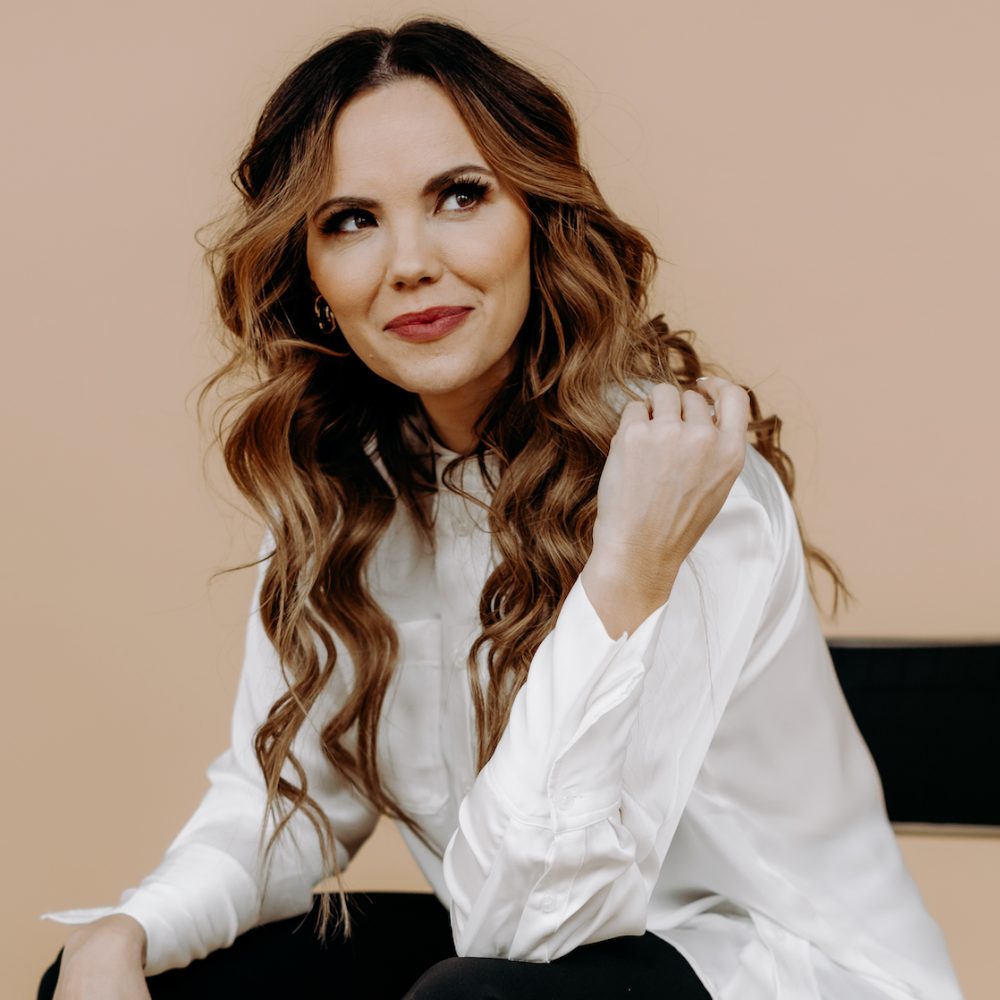
Leah Darrow
Leah didn’t wake up holy. She grew up Catholic but wandered far, chasing every glittery promise the world made. She became a model — runway lights, VIP rooms, photo shoots that stripped her down in more ways than one.
She thought beauty was her ticket to being loved. That if she was hot enough, thin enough, reckless enough, someone would finally stay. Nights blurred into afterparties. Relationships were shallow, hearts disposable. Leah would put on mascara, heels, a practiced smirk — and still come home feeling ugly, small, hollow. It all cracked in a studio one afternoon. She stood there under hot lights, about to shed one more layer of clothing for a photo she knew would shred her dignity. Suddenly she was face to face with a haunting clarity: “Is this really all I’m worth?”
She left the shoot mid-session. Walked out. Her phone kept buzzing with agents’ threats and photographers’ insults, but inside there was a small, trembling voice that refused to be silenced. Leah spent years trying to rebuild from the wreckage. Shame clung to her like a second skin. Even after confession, she doubted God could want someone who had treated love like a cheap transaction.
Now, she stands in front of crowds with tears in her mascara, telling the truth most people are too scared to name: that we trade ourselves for crumbs because we’re starving for real love. That we let ourselves be used because we’ve forgotten our worth.
If you think you’ve screwed up your story beyond repair — if you’ve lain awake at night replaying the faces, the mistakes, the ways you sold yourself short — Leah’s living proof that God can make something breathtaking out of the ashes.
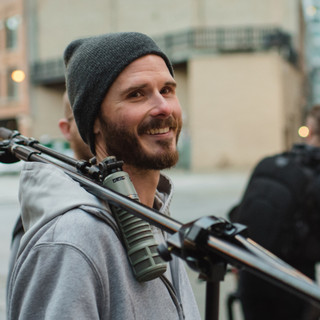
Brother Isaiah CFR
Brother Isaiah grew up chasing all the things he thought would fill him — parties, girls, approval. But underneath was a heavy ache. He once admitted he was restless, tangled up in hidden sins, battling temptation and loneliness he couldn’t shake.
When Jesus finally broke through, it was like being “wrecked by beauty.” He left everything behind, walked barefoot into the Bronx with the CFRs — living among the poor, praying long hours before the tabernacle, singing raspy songs about mercy that sound like they’re torn straight from an addict’s open wound. He doesn’t pretend holiness is squeaky clean. He says, “God’s mercy rushes into our poverty. That’s where He does His best work — in our mess.”
If you think you’re too flawed, too hungry, too haunted to belong to God — Brother Isaiah would probably hand you a guitar, pour you a cup of cheap coffee, and tell you that brokenness is the best place for grace to bloom.
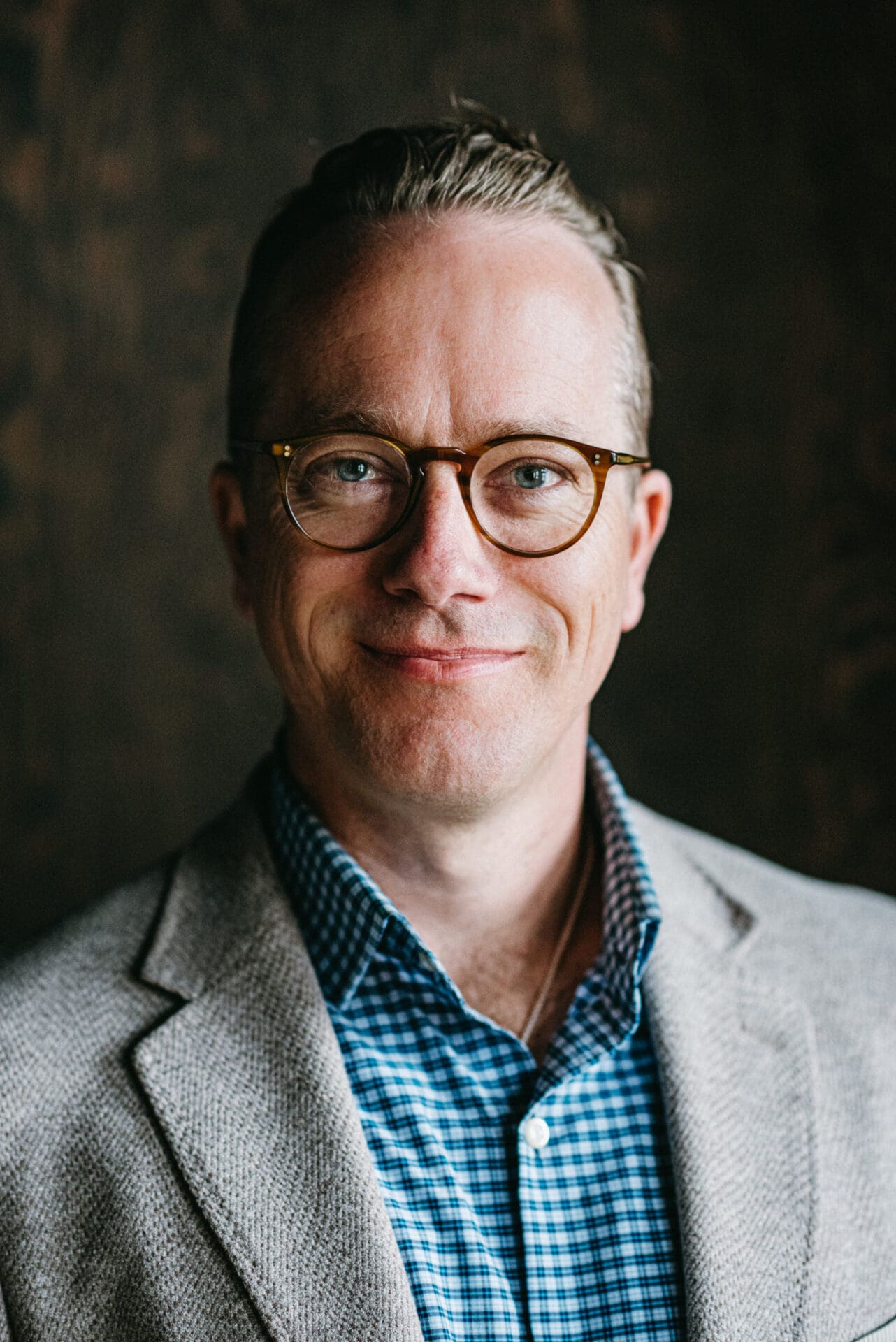
Matt Fradd
Matt Fradd grew up chasing every thrill — parties, booze, girls — but underneath he was hollow. Pornography wrapped around his life early and dug in deep, twisting how he saw love, lust, and even himself. By his own words, he was a slave to it, drowning in shame, convinced he could never claw out. What finally broke through wasn’t guilt but grace. A night in Eucharistic adoration wrecked him in the best way. He sobbed, confessed everything, and slowly — painfully — started living free.
Now he speaks bluntly all over the world about porn, addiction, and the lies that keep us chained. His podcast, Pints With Aquinas, tackles everything from philosophy to sexual sin, mixing theology with the raw honesty of someone who knows exactly what it’s like to be enslaved. Matt puts it simply, “If you feel like trash because of what you’ve done, I want you to know you’re not trash. You are not your sin. You are loved.”
If you think your addictions or your sexual mess make you unlovable, Matt’s story says otherwise. Mercy’s real — and it’s stronger than your worst days.

Fr. Dan Reehil
Fr. Dan Reehil grew up Catholic in Long Island but dropped God as soon as he could, diving headfirst into New York’s cutthroat business world. By his own admission, he spent years chasing money, power, sex, and endless parties. He moved through Wall Street circles and high-stakes corporate finance, trying to fill an emptiness he couldn’t name. But the more he grabbed, the emptier he felt. It led to years of secret sexual sin, serial relationships, heavy drinking, and spiraling darkness that left him feeling disgusted with himself.
A trip to Medjugorje in the 1990s — only taken because a friend begged him — shattered his illusions. He experienced the Eucharist and confession like an earthquake in his soul, breaking open decades of shame. He said he finally saw the ugliness he’d become and wept.
He left Wall Street, spent time in discernment, then entered seminary in Rome and eventually became a priest for the Diocese of Nashville. Today he’s known for speaking bluntly about spiritual warfare, confession, and how Satan tries to hook us through our wounds.
He often says, “The devil is real, hell is real, but God’s mercy is bigger. I’m living proof of that.”
If you think you’ve messed up your life too badly, chased too many dark thrills, or ruined your shot at holiness, Fr. Dan’s story shows God doesn’t care how far you ran — only how you turn back.
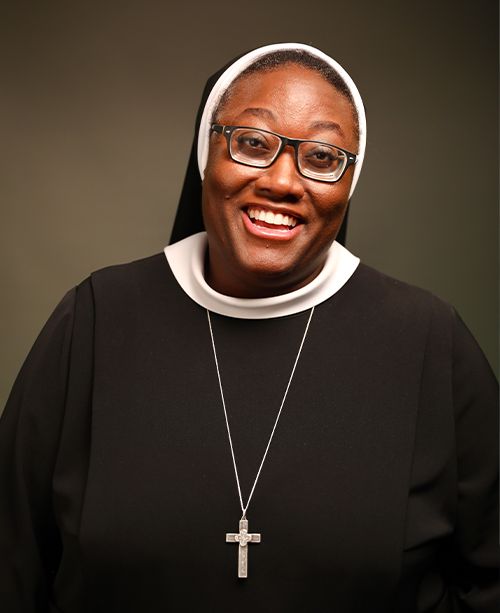
sister josephine garrett
Sister Josephine Garrett didn’t grow up Catholic — or safe. Her childhood carried deep family wounds, complicated by trauma and the burden of being Black in spaces that didn’t always know how to see her dignity. She battled anxiety and depression from early on, trying to outrun pain by achieving more, climbing higher. She got a degree in political science, worked in banking, and crafted a life that looked perfect from the outside. But inside, she was scraping for worth, terrified of being known in her brokenness.
Now she’s a Sister of the Holy Family of Nazareth, but more than that: she’s a mental health counselor who specializes in trauma, grief, racial wounds, addiction, and helping people rebuild a sense of human dignity from the ground up. She sits with teens who want to die, with women crushed by abuse, with families wrecked by secrets — and tells them again and again that their life is sacred, even here.
She says, “Healing isn’t about being shiny and perfect. It’s about learning how to carry your story — all of it — and still believe you’re loved.”
She also speaks boldly about racism, about how wounds of oppression warp the soul, and how holiness means lifting up the ones the world tries to silence. Her mission is raw mercy: being a shelter where every kind of wounded heart can breathe and remember they matter.
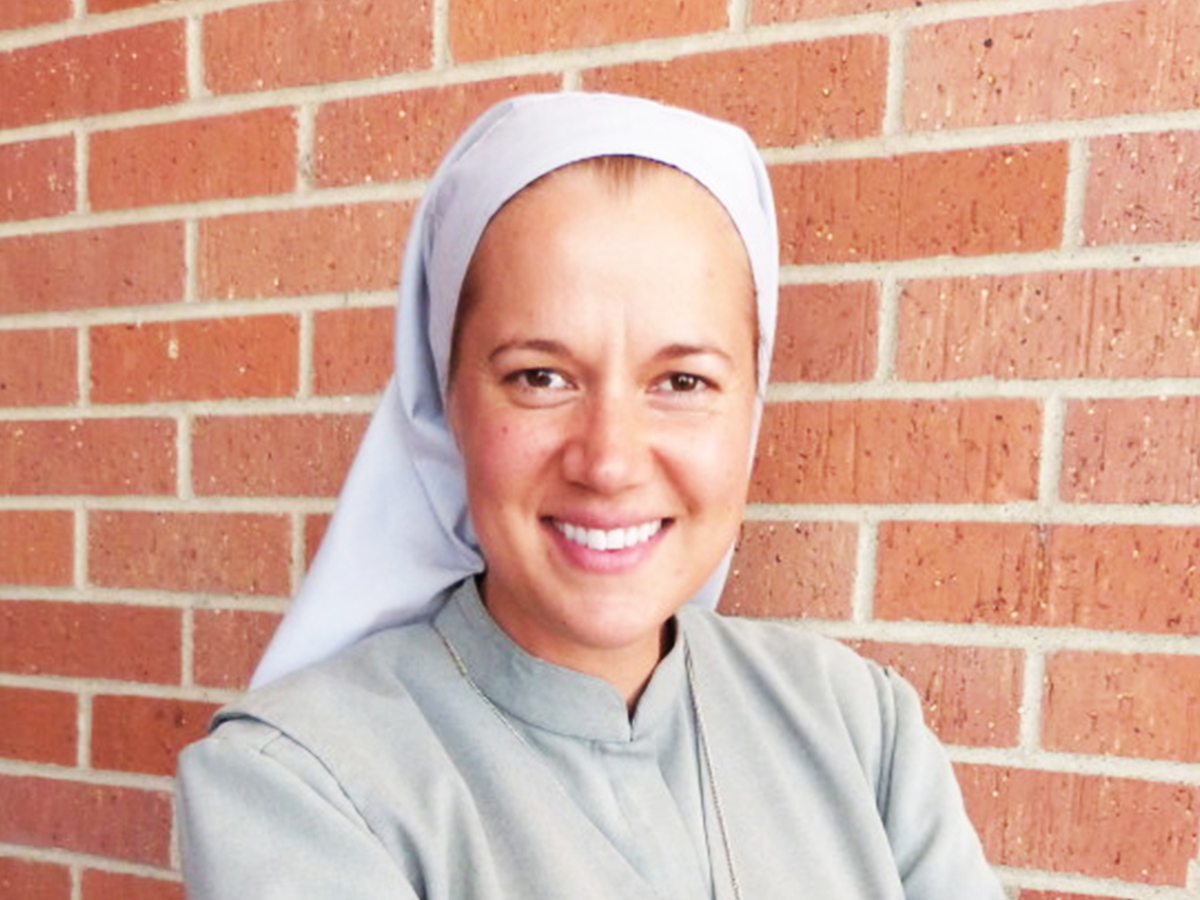
sister miriam james heidland
Sister Miriam James Heidland grew up adopted, carrying hidden questions about her worth — quietly haunted by the fact that she was only here because her birth mother chose not to abort her a second time. As a child she endured sexual abuse that left deep scars on her body and soul.
In college she was a standout volleyball player, living what looked like a dream — but underneath was drowning in shame, trauma, and a desperate need to be loved. She tried to fill it with partying, sexual relationships, and heavy drinking that eventually became full-blown addiction.
She still goes to AA meetings today and openly calls herself an addict, knowing recovery is lifelong. Now a sister with the Society of Our Lady of the Most Holy Trinity, she spends her life walking with others who carry trauma, addiction, or the lie that they’re too broken to be loved. She’s living proof that God’s tenderness reaches right into the darkest, most wounded places — and stays.
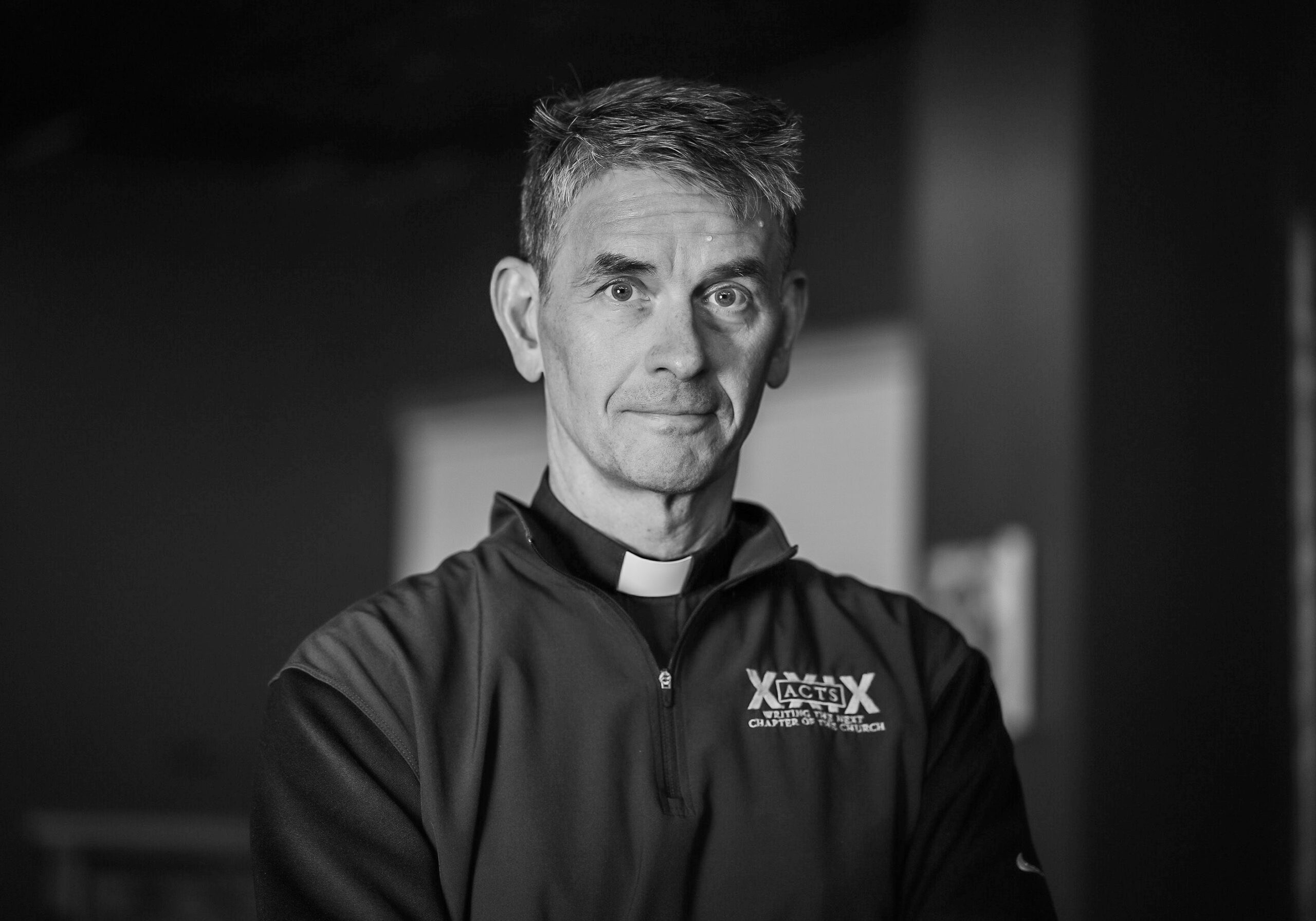
father john riccardo
Fr. John Riccardo grew up in Detroit in a wealthy, respected family — his dad was a top executive at General Motors. From the outside, everything looked perfect. But behind closed doors, John was being sexually abused as a child — a secret that swallowed him alive for decades. His mother carried her own wounds from a father who had abandoned the family for a mistress, and John watched his dad love her tenderly through it. Meanwhile, John grew cold and aloof, pushing people away because letting them close felt too dangerous.
The house he grew up in was haunted by memories he couldn’t bear. For years he avoided going home for holidays, and when his father died, he almost didn’t attend the funeral — the thought of stepping back into that place was suffocating. It wasn’t until after the funeral that he finally confessed to his family what he’d endured all those years: he had been sexually abused in that very home. He tried to outrun the shame by chasing all the things that looked strong from the outside — success, admiration, control. Even after becoming a priest, he says he had to keep letting God dig deeper, healing places he’d long kept hidden.
Now he spends his life reaching people who think their story is too broken or ugly for God to want. Through ACTS XXIX, he travels the country telling men and women that Jesus doesn’t just forgive sin — He wants to rescue us from every wound, even the ones we’re terrified to name.
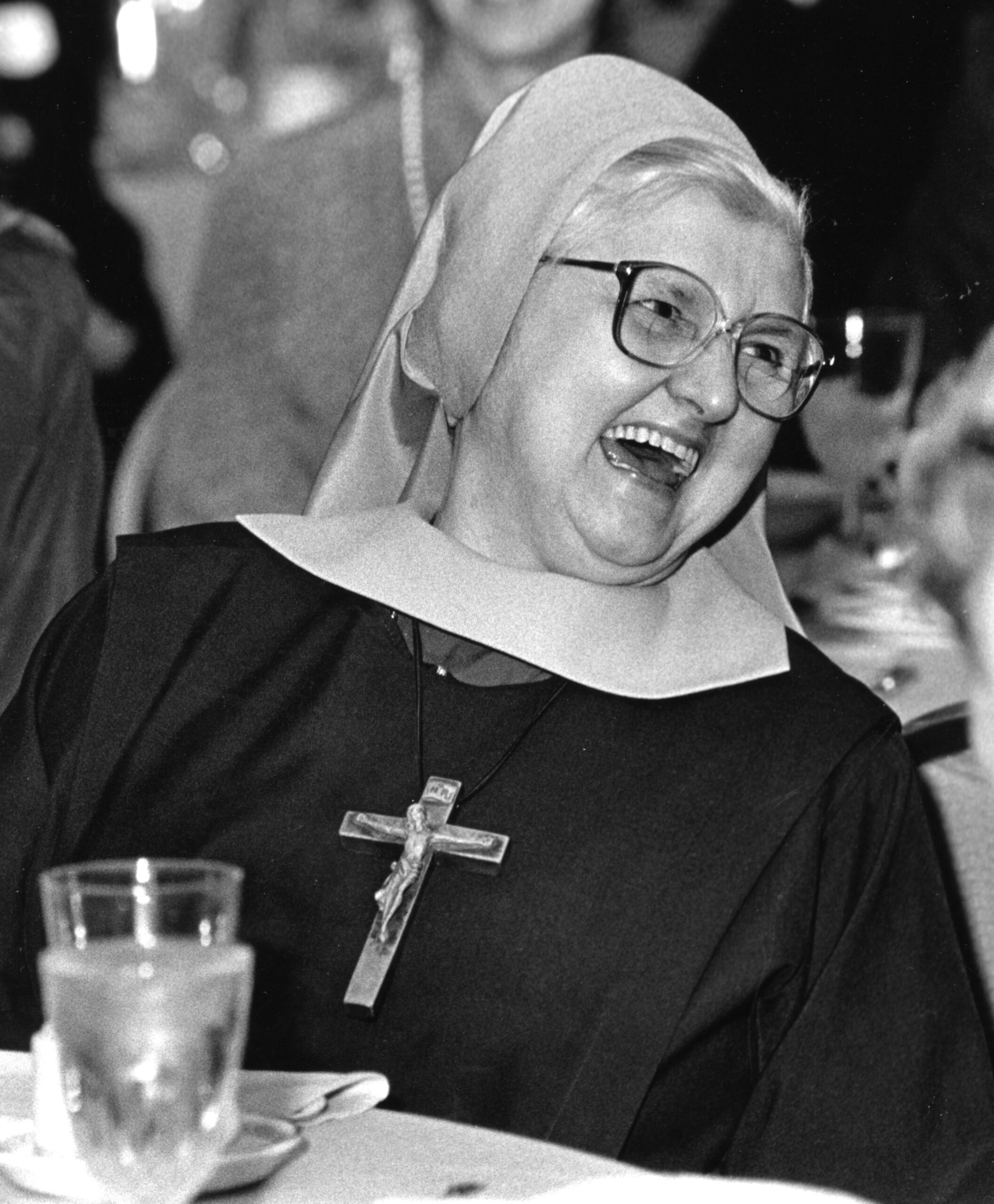
Mother Angelica
Mother Angelica wasn’t born a saint. She grew up as little Rita Rizzo in Canton, Ohio — abandoned by her father, left with a mother drowning in depression so deep Rita often felt completely unloved. At school, she struggled, barely scraping by, distracted and ashamed, certain she’d never amount to anything.
She had a fiery temper and sharp tongue that scandalized people even after she became a nun. Beneath it was a terrified heart, afraid God would find her lacking. She once confessed, “I’m not afraid to fail. I’m scared to death of dying and having the Lord say to me, ‘Angelica, this is what you might have done had you trusted more.’”
On top of it all, she lived with chronic, debilitating illness most of her life — severe stomach problems, braces on her legs as a girl, later suffering strokes and pain that never fully left.
So when God nudged her to start a Catholic TV network, it was laughable. She was an uneducated cloistered nun, sick, underqualified, hot-tempered, and broke. Everyone told her it was impossible. She did it anyway.
If you’ve ever felt unwanted, too angry, too sick, too underprepared — Mother Angelica proves God takes the least likely, the half-broken, the overlooked, and turns them into miracles.
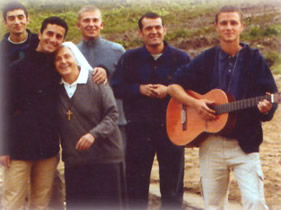
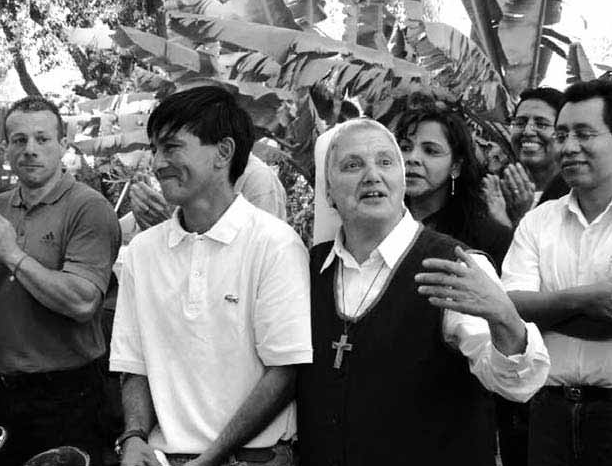
Mother Elvira Petrozzi
Mother Elvira grew up in Italy, the daughter of a broken family shattered by alcoholism and poverty. As a teenager, she was tough, restless, full of questions, scraping by emotionally and financially. Her early years weren’t stained glass — they were dark alleyways of doubt, loneliness, and a fierce hunger to be loved. She entered the Sisters of Charity and worked for years with the sick and dying. But it wasn’t enough. She felt God was calling her to the ones no one wanted — the addicts, prostitutes, runaways, the kids who cut themselves or sold their bodies or stole to survive.
In 1983, with practically no money and just a crumbling old house, she opened the first Cenacolo community for drug addicts. It wasn’t therapy or meds — it was prayer, hard work, brutal honesty, daily Mass, and living as a family. She called it a “school of life.” Thousands of addicts from around the world have walked through those doors since, many arriving strung out, suicidal, or straight from prison. She once said, “I have seen so many dead people come back to life. Not dead in the grave — dead on their feet, dead inside. And now look at them: free, smiling, loving God.”
If you think you’ve ruined your life, if you can’t imagine God wanting you in your filth and failure — Mother Elvira spent her life running right into that darkness to drag you out.
